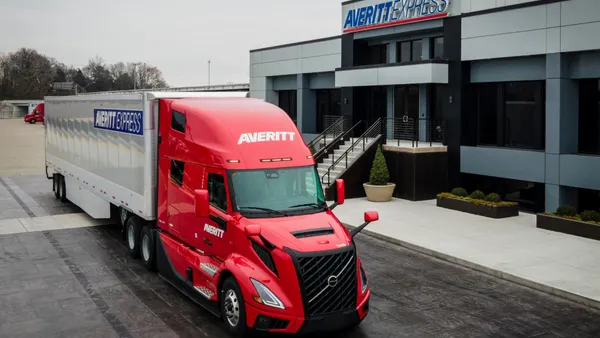Every year the American Transportation Research Institute compiles a list of the top 10 critical issues facing the trucking industry. Insurance availability and cost ranks at No. 5 this year. The last time insurance made the list, it ranked at a prominent third place in 2005.
For 15 years, the cost for coverage and protection for trucking fleets hasn't been a top-10 issue. So, why is it now?
Insurance pricing trails what actually happens in the real world, said Orlando Frasca, owner and president of Rogers Insurance Services in California. That means taking a critical look at 2018 and 2019 can give insight into the high insurance premiums trucking companies pay now.
Costs rise for a confluence of reasons
"Older vehicles were retired and replaced with newer ones, and it costs more to insure more contemporary models,"said Frasca. More vehicles have been on the roads each year than the year prior for the last five or so years, Frasca said. "Because of the volume of vehicles on the road, the number and the severity of accidents was higher, which often coincided with greater amounts paid out by insurance companies."
Last year, the Truckload Carriers Association conducted a poll of insurance costs and found members were paying as much as 15% more in 2019 than in 2018.
Business slowed in 2020 due to pandemic-related lockdowns and then picked up again, but Frasca said that wave hasn't impacted insurance rates yet.
"Because of the volume of vehicles on the road, the number and the severity of accidents was higher, which often coincided with greater amounts paid out by insurance companies."

Orlando Frasca
Owner and President of Rogers Insurance Services
But as fleets get busier, they need more drivers and have, in some cases, hired ones with adverse driving records, which can hike rates, Frasca said. The type of cargo carried and the driving routes trucks take can also make insurance more expensive, and newer drivers might not do as well on secondary roads, Frasca said.
The value of the cargo has changed, with more electronics and smaller items with more value being moved now compared to loads in the past, he said.
Technology is coming fast and furious to the trucking industry, and though some fleets may not have adopted it yet. For example, independent contractors may not have the capital to do so, said David Heller, vice president of government affairs for TCA.
"It's a confluence of all sorts of reasons. Lack of drivers – fleets are constantly searching for new drivers. If they don't have the technology to monitor speed, braking and how safe the driver drives, fleet managers can't track their fleets very easily," said Heller. "Litigators who buy billboard space urging people to call if they've been in an accident with a truck also drive up insurance costs."
"Lots of claims go unpaid because the policies weren't written correctly."

Orlando Frasca
Owner and President of Rogers Insurance Services
Nuclear verdicts, those over $10 million, have developed into a big concern, he said.
An ATRI study, released in June, looked at 600 accident cases that occurred between 2006 and 2019. During the first five years of the study, only 26 cases involved awards of over $1 million, but during the last five years that number jumped to 300.
Safety: A good place to start
Heller said he's been involved with truck safety for over 20 years, and there are no secrets to how to operate safely.
"All these issues have been overcome, so getting involved with others in the industry and networking gives you a chance to bounce ideas off them. That can help," said Heller.
TCA and the Motor Carrier Insurance Education Foundation have developed a partnership and now provide the Motor Carrier Insurance Risk Management Program to TCA members and non-members. It consists of online modules that show how insurance works.
From an insurance perspective, Frasca has suggestions:
- Institute higher-level driver safety trainings.
- Monitor what your drivers are doing through telematics (telematics gets an insurance break).
- Negotiate better insurance rates if you run a large fleet (100 or more trucks).
- Work with an insurance company that specializes in the trucking industry.
"We've had to fix past problems because a trucking company went with an insurance company that didn't know the industry,"said Frasca. "Lots of claims go unpaid because the policies weren't written correctly."
Improving the safety of your operations will always have an effect on insurance costs, Heller said. That's a good place to start.








